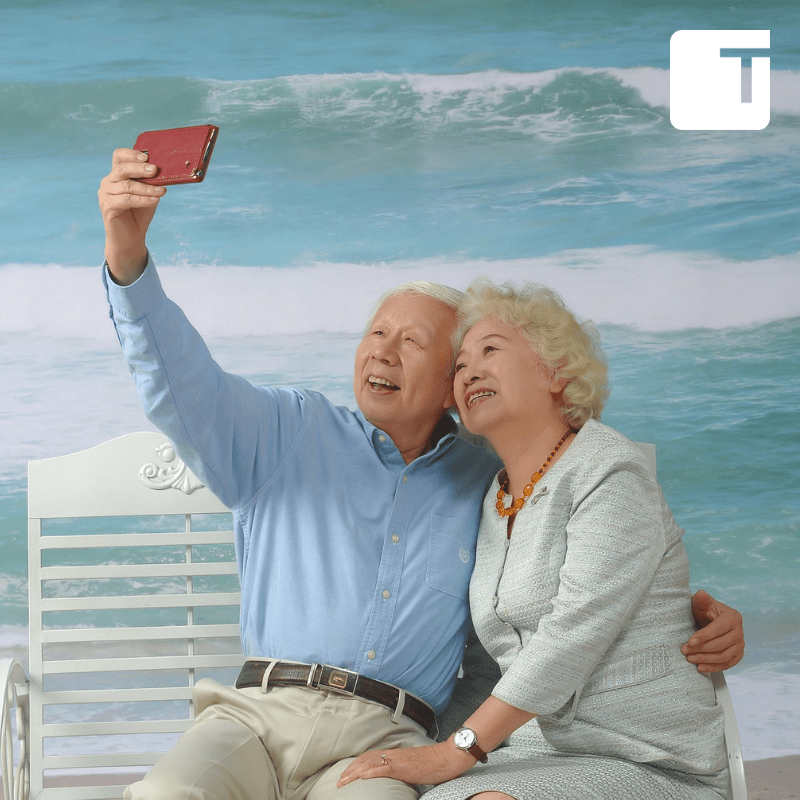Originally published in 2008, the topic of respect is still a habit we must cultivate each day.
Throughout my life, I’ve been blessed to have friends in all shapes and sizes, colors and ages. Looking at them, you might have a hard time identifying what they have in common. Talking with them, you’d know instantly. They are a generous lot, interested in the world, always looking for inspiration, and consistently exploring ideas.
Lately, I’ve been lucky enough to visit about a dozen friends whom I consider to be among my favorite people on this earth. They live throughout the country and differ on politics and religion. What they share, for the purposes of this article, is their status as senior citizens. They all happen to be over 80 years old. Okay, most of them happen to be closer to 90 than 80.
I was on the road, driving to Sedona, AZ, to visit several of them last week, when I heard a startling report on the radio. According to a poll conducted by city and county agencies on aging in Los Angeles, almost a third of the county’s seniors had not had a dental exam in three years. Of almost 16,500 older residents polled, nearly two-thirds said they had inadequate or no dental insurance and nearly 20% said they lacked affordable dental care. The Los Angeles area is home to nearly a third of California’s older adults, or 1.4 million. (For the purposes of this study, seniors are 60 and older, not so very old.) Estimates are the number will more than double by 2030. Wherever you live, odds are the population is aging.
My friends take their health seriously, and, for the most part, are enjoying quality of life. I’m particularly lucky because my father, soon to be 89, sets an example for us all. He still goes to the lab at the Cancer Research Center every day to see what’s happened in his Petri dishes overnight; he still paints and enters local art exhibits; he still sees at least one movie a week, as well as attending concerts and lectures. He travels, he keeps up with the news, and he’s eating and exercising more healthily as each day passes. But even he has more doctors’ appointments than ever. And not all my friends are as lucky in health as my father.
The number of doctors’ appointments can be daunting even to a healthy senior. Some of my lady friends laugh about the fact they buy clothes for their appearances in waiting rooms, whereas they’d once considered fashion for more exciting events. These same friends worry about forgetting dates and appointments, no longer drive at night or at all, and struggle to get around with canes and wheelchairs or limited vision. Yet they are otherwise vital and thoughtful people.
I can’t solve the health care crisis, but I can suggest you take a few minutes in your next staff meeting to brainstorm ways you might be more hospitable to your older patients. Take a minute to imagine how well your parents or grandparents might navigate a visit to your office.
- Do you take transportation issues into consideration when scheduling? Will the patient be driving, or require the assistance of a spouse, friend, or offspring?
- Do you understand when another medical emergency, either for the patient or the patient’s spouse, has to take precedent?
- Do you offer the courtesy of a reminder call to your older patients, even if your office doesn’t routinely make them?
- In treatment, are you clear about procedures and instructions, understanding hearing may be a challenge, as well as remembering?
- Is the path to your office well-lit and accessible?
- Do you have magazines, with pictures, readily available to those in your reception area who will not be thumbing their way through text messages? Do you offer to let a patient take one home if she sees something of interest?
- What other creative actions can you take to make your seniors more comfortable? An extra pair of reading glasses on the counter? Even a magnifying glass?
Thanks to my friends, I’ve come to believe a quote by author Doris Lessing:
“The great secret that all old people share is that you really haven’t changed in seventy or eighty years. Your body changes, but you don’t change at all. And that, of course, causes great confusion.”
What can you do in your office to minimize the confusion?

